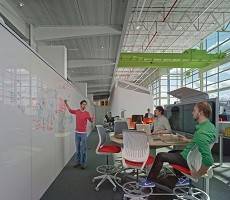November 4, 2014
Built environment argues economic benefits of meeting climate change challenge
 Following the publication of the latest Intergovernmental Panel on Climate Change (IPCC) report, warning about the effects of global climate change; the chief executives and senior leaders of 18 major businesses in the construction and property sector have written an open letter, published in The Daily Telegraph to highlight the economy opportunity presented by climate change and to defend the UK’s ground breaking Climate Change Act. In the letter, which includes signatories from Land Securities Group, BAM Construct and Balfour Beatty, the leaders warn that “undermining of the Climate Change Act is deeply unhelpful, and creates uncertainty”, and that “it should continue to be the central framework against which to deliver clear and consistent policy. It states: “Our businesses are convinced that Britain can and should be a world leader, and that far from being a burden to UK Plc, clear commitment to tackling climate change will open up opportunities for businesses both at home and abroad.”
Following the publication of the latest Intergovernmental Panel on Climate Change (IPCC) report, warning about the effects of global climate change; the chief executives and senior leaders of 18 major businesses in the construction and property sector have written an open letter, published in The Daily Telegraph to highlight the economy opportunity presented by climate change and to defend the UK’s ground breaking Climate Change Act. In the letter, which includes signatories from Land Securities Group, BAM Construct and Balfour Beatty, the leaders warn that “undermining of the Climate Change Act is deeply unhelpful, and creates uncertainty”, and that “it should continue to be the central framework against which to deliver clear and consistent policy. It states: “Our businesses are convinced that Britain can and should be a world leader, and that far from being a burden to UK Plc, clear commitment to tackling climate change will open up opportunities for businesses both at home and abroad.”





















October 29, 2014
The business case for green building widens to cover wellness and productivity
by Alison Kitchingman • Comment, Environment, Facilities management, Workplace design
(more…)